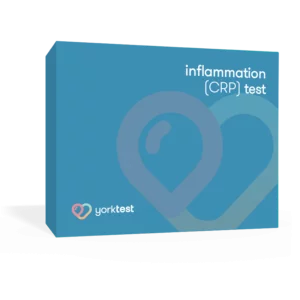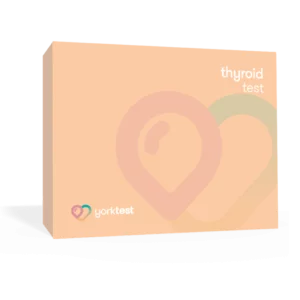- What causes cat allergies?
- How common are cat allergies?
- What are the symptoms of a cat allergy?
- What can a cat allergy look like?
- How long do cat allergy symptoms last after exposure?
- What does a cat allergy look like in children?
- What medications can treat cat allergies?
- How to Prevent cat allergies
- How long does a cat allergy last – is it lifetime?
- Can you get rid of a cat allergy?
- Can you become less allergic to cats over time?
- How to diagnose cat allergies
- Which types of test are available?
- How to test for cat allergy at home?
Cats are the most frequently encountered household pets, contributing to a major source of allergens. Approximately 35% of the UK population has Pet Allergies which may present in many forms and range widely in symptoms and reactions.
An animal’s saliva, urine, and skin cells are all potential allergy triggers. Each contains specific proteins that can activate the immune system and cause adverse symptoms, be it a minor skin rash or a full-blown asthma attack. Pets, notably cats are suggested to be the a leading cause of allergic asthma, after mites and pollens.
What causes cat allergies?
The immune system protects us from outside invaders, such as bacteria, viruses, fungi, and toxins. Allergies are the immune system’s response to a substance, an allergen. The main sources of cat allergens are salivary, sebaceous (skin cells also known as dander) and urinary.
Proteins found within these sources trigger our immune response, often via airborne particles able to reach the lungs (specifically the small bronchioles).
The major cat allergen is a protein called Fel d 1. It has been shown that cat owners can inhale almost as much Fel d 1 in a single day as they do pollen allergens in a whole year!
The official allergen site, approved by WHO, records 8 different cat allergens.
How common are cat allergies?
The increase of pets within the home – a recent survey found 62% of British households own a pet – has led to an increase in the prevalence of cat allergies. For example, in Europe approximately 26% of adults have consulted their doctor for a suspected cat allergy. Meanwhile, in the UK approximately 25% of people own a cat with pet allergy being the most common cause of allergy in the home
What are the symptoms of a cat allergy?
The symptoms of a cat dander allergy can range from mild to severe, but often include:
- Sinus irritation and sneezing
- Runny nose
- Itchy, watery eyes
- Congestion
- Skin rash and eczema
- Itching and dryness
- Redness and swelling
- Difficulty breathing
- Chest tightness
If you suspect you could be having a serious allergic reaction (anaphylaxis) please seek immediate treatment in hospital.
What can a cat allergy look like?
Depending on the levels of allergen and a person’s sensitivity, reaction to cat allergens may be immediate or not until several days after contact.
It is common to get itchy eyes after petting a cat and then touching your eyes. A cat scratch or lick on your skin can cause the area to become red and itchy, possibly causing hives (a rash with raised red patches). Cat allergies can also trigger an asthma attack if you have asthma.
How long do cat allergy symptoms last after exposure?
Cat allergens are particularly persistent and can remain in the home for a number of months after the cat is no longer there. Therefore, a person who is allergic to cats may continue to have symptoms even after the cat is no longer present. However, symptoms should desist with the correct treatment plan.
What does a cat allergy look like in children?
An infant who is sick, has difficulty sleeping, has trouble breathing, develops rashes, or has unexplained respiratory symptoms after being exposed to cat allergens may be allergic. If you have any concerns about your child’s health, you should always consult your doctor.
How to manage cat allergies
Taking preventative measures can help you to avoid cat allergy symptoms, whilst medications can help to alleviate symptoms when they arise.
What medications can treat cat allergies?
In order to treat and alleviate your cat allergy symptoms, your doctor may suggest:
- Antihistamines reduce the production of an immune system chemical that is active in an allergic reaction, and they help relieve itching, sneezing and runny nose.
- Corticosteroids delivered as a nasal spray can reduce inflammation and control symptoms of cat allergies.
- Decongestants can help shrink swollen tissues in your nasal passages and make it easier to breathe through your nose.
- Leukotriene modifiers block the action of certain immune system chemicals.
- Immunotherapy. You can “train” your immune system not to be sensitive to an allergen. Immunotherapy is delivered through a series of allergy shots.
- Nasal irrigation. You can use a specially designed squeeze bottle to flush thickened mucus and irritants from your sinuses with a prepared saltwater (saline) rinse.
How to Prevent cat allergies
Other ways to minimize cat allergy symptoms when living with cats include:
- Avoid hugging and kissing pets if you are allergic to them
- Wash your hands regularly, especially after coming in contact with furry animals.
- Keeping pets out of specific areas such as your bedroom can reduce allergy symptoms since you spend about eight hours every day in this room. So can keeping your pet off of upholstered furniture.
- Grooming: Have someone who doesn’t have allergies brush the cat regularly—outside, not indoors.
- Vacuuming: Regularly vacuum using a double or micro-filter bag in the vacuum to reduce the amount of pet allergen present in carpeting that leaks back into the room air.
- Air purifiers: Use HEPA air cleaners, which can be a big help in removing unwanted allergenic particles from the air.
- Remove carpeting and rugs, which can trap pet dander and other allergens, low pile carpet can reduce trapped dander.
Keeping animals outside may only a temporary solution, since pet dander will eventually make its way indoors as it is carried on clothing.
How long does a cat allergy last – is it lifetime?
Allergies to cats can come and go. Some people who are initially allergic to cats may become tolerant over time, while others may develop a more severe allergy.
Can you get rid of a cat allergy?
There is no cure to cat allergies, however there are effective ways to build up immunity against the allergen, such as immunotherapy.
Can you become less allergic to cats over time?
People with cat allergies manage rather than cure their condition – usually with medications such as antihistamines, and by trying to avoid anything that causes a reaction. In many cases, you don’t have to make drastic lifestyle changes.
Many children may outgrow allergies, which are often to milk or eggs.
Allergen-specific immunotherapy (SIT) is a treatment option for patients with allergic rhinitis triggered by aeroallergens (such as pollen, animal dander, or dust) when pharmacological therapies, such as antihistamines, are insufficient.
How to diagnose cat allergies
Like all forms of allergy testing, the aim is to detect allergen specific IgE (Immunoglobulin E) to determine if you have a pet dander allergy. Whether done at home or through your physician, an IgE detection via blood testing will effectively validate an allergy, and if allergy, enable you to seek the best form of treatment or lifestyle changes.
Which types of test are available?
If you suspect that you are suffering from a cat allergy, you may want to take a test. Proper allergy testing is crucial in situations in which pet dander is the suspected trigger.
To determine if you have an allergy to cat dander, either a skin prick test such as the Food Allergy Test or a blood test is recommended for the most accurate results. Skin prick tests are usually done by a physician in a clinical setting, whereby a very small amount of the allergen is pricked onto the skin. In the case of reaction, an allergy can be validated.
How to test for cat allergy at home?
Lab-Certified blood tests are arguably more accurate, and in some cases, easier to use. While sometimes administered in a clinical setting, at-home allergy tests make it convenient for individuals to determine their allergies – including allergies to cat and dog dander – from the comfort of their homes.












